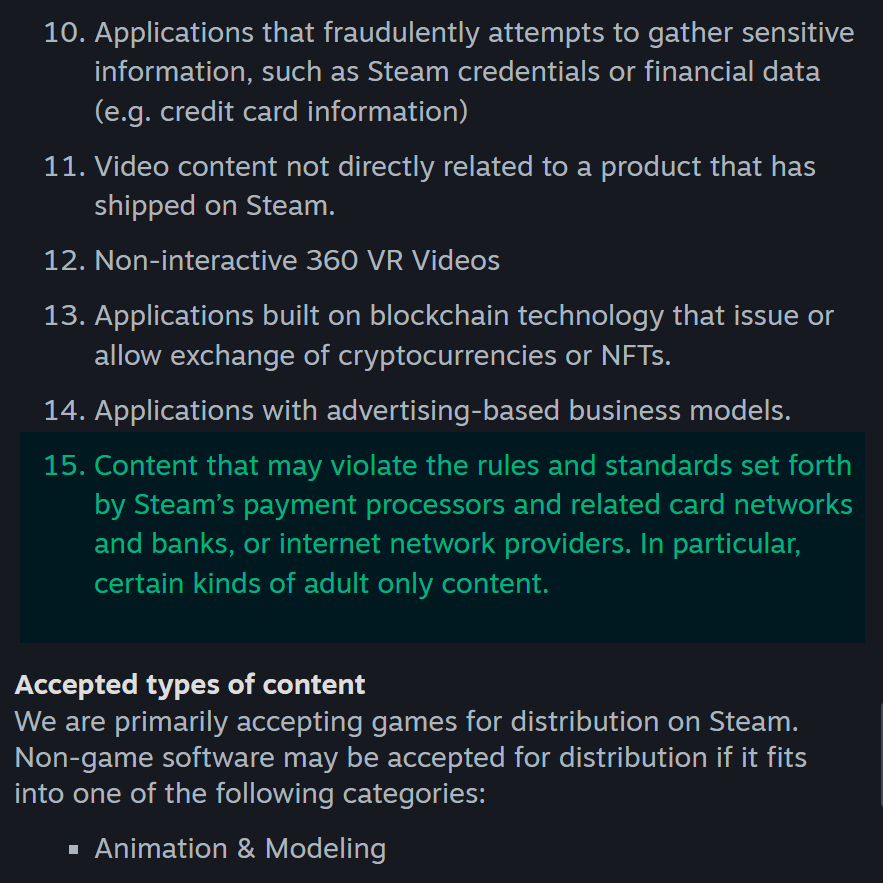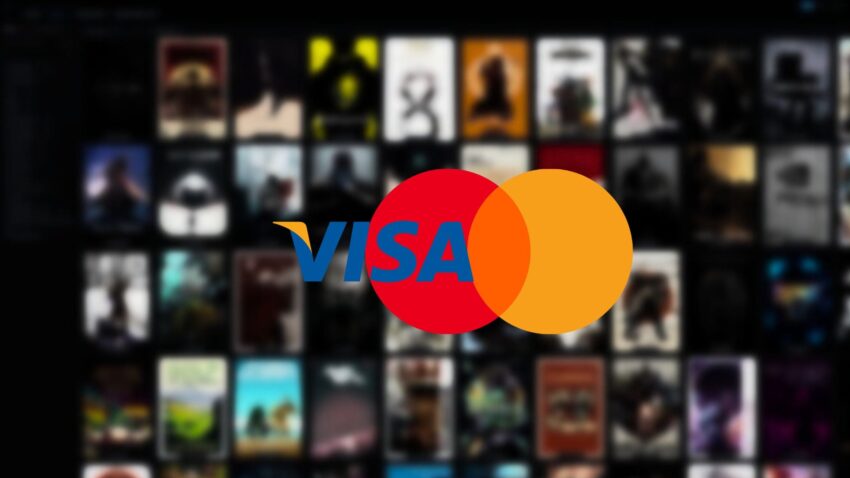If you’re tired of censorship and dystopian threats against civil liberties, subscribe to Reclaim The Net.
Somewhere between your mouse click and a purchase, a private boardroom full of executives quietly decided what you’re allowed to see, support, or sell. They don’t run your favorite website. They’re not elected lawmakers. But if Visa or Mastercard doesn’t like the look of a transaction, that transaction ceases to exist. That piece of content, that creator, that platform: gone.
There are a lot of complaints in tech circles about who’s getting deplatformed by YouTube this week. Meanwhile, the most consequential censorship in the digital economy has nothing to do with social media and everything to do with whether a little plastic rectangle will greenlight your purchase. And there’s no appeals process. No trial. Just a silent ax falling from a credit card duopoly that nobody elected and nobody seems able to challenge.
Take the recent purge of over 50 adult-themed games from Steam, the dominant digital PC game store. No new law had passed. It was a threat from Visa and Mastercard, quietly relayed like an old-school mafia warning. Valve, Steam’s parent company, made it clear: “We were recently notified that certain games on Steam may violate the rules and standards set forth by our payment processors and their related card networks and banks.”
In other words: “We’d like to keep making money.”
Valve didn’t wake up with a sudden newfound sense of moral hygiene. It was the payment processors. They pulled the fire alarm, and Steam complied like any rational hostage trying to keep the electricity on.
That’s what happens when the pipes of global commerce are guarded by a pair of unaccountable financial institutions that somehow got into the censorship business without anyone noticing.
Visa and Mastercard are no longer just companies. They’re gatekeepers of moral acceptability.
One day your art is fine, the next it’s too spicy for the algorithms; or worse, for the boardroom optics team. And if they decide your platform has crossed some invisible line? That’s it. No explanation required. No appeals offered. The economic oxygen gets cut off and there’s no recourse.
It’s one thing to be beholden to government regulations. It’s another when your business is held hostage by a pair of logos with an embossed hologram.
The Visa-Mastercard tag team controls the overwhelming majority of online transactions. Try switching. You’ll quickly learn that “competition” in this sector is a myth fit for Econ 101 textbooks and TED Talks. There is no at-scale alternative. If Visa or Mastercard says no, then your business idea goes into a digital landfill, alongside adult artists, niche communities, and anything else deemed reputationally risky.
Valve didn’t throw a tantrum, didn’t protest, didn’t issue a statement about artistic freedom. It quietly added new terms to its Steamworks documentation. The language now includes a magical catch-all: content that may violate the “rules and standards” of payment processors and their affiliated banks.
The change wasn’t even announced. SteamDB, an independent site that monitors backend changes to the Steam platform, spotted the revision. Japanese site Gamespark picked it up from there. Valve, as usual, relied on the power of silence and a couple paragraphs of corporate boilerplate when the news finally broke.

What broke the camel’s back? An open letter. On July 11, an Australian outfit called Collective Shout, which has made it its mission to purge the internet of things it doesn’t like, publicly pressured payment processors to drop support for both Steam and Itch.io over so-called “harmful” games.
Within weeks, the games vanished. Valve confirmed the removals, telling reporters they had been “recently notified” that some games might violate the sacred rules of the card networks.
“As a result, we are retiring those games from being sold on the Steam Store,” a Valve spokesperson said.
They added that affected developers would be granted submission credits to try again, assuming they could conform to the undefined and ever-shifting standards of companies whose job used to be processing payments, not ghostwriting morality clauses.
Valve didn’t name the “offending” games. But according to several developers and observers, many dealt with controversial themes; incest, dubious consent, and other niche fetishes that are, while often taboo, are otherwise mainstays of any HBO Sunday night drama.
The games weren’t about real people. They weren’t filmed. They were animated or otherwise fictional. They were not violating any laws. But that didn’t matter.
So out they went.
Collective Shout, having thrown the grenade, took a victory lap.
Then, in the very next breath, the group positioned itself as a victim of harassment, once people criticized its censorship activism.
So the pattern continues: throw bricks, call it advocacy, and when the bricks come flying back, cry foul. They paint themselves as a brave nonprofit facing down a mob of depraved gamer-incel-mutants, as if they were storming the Bastille rather than dictating what legal fiction people are allowed to buy with a credit card.
It’s not that people have to like these games. But the idea that a few corporate compliance departments, following a campaign led by a morality watchdog from halfway across the planet, can snap their fingers and make content disappear from a global platform; that’s what should concern anyone who cares about digital freedom.
When a payment processor pulls out of a platform, it’s a threat: comply or die. Valve got the message. The platform isn’t always the problem. The financial stack is.
This is how modern censorship works. It’s slow, opaque, and enforced not by government agents, but by brand safety consultants working for companies whose job was once to process payments and now includes playing God.
Payment processors have already been caught up in political censorship. Up next? Who knows. Fictional depictions of violence? Games that feature the wrong kind of political message? Once this door is open, there’s no obvious reason to close it.
If you’re tired of censorship and dystopian threats against civil liberties, subscribe to Reclaim The Net.
The post Steam Purges Games Under Pressure from Visa and Mastercard’s Unseen Censorship appeared first on Reclaim The Net.
Click this link for the original source of this article.
Author: Christina Maas
This content is courtesy of, and owned and copyrighted by, https://reclaimthenet.org and its author. This content is made available by use of the public RSS feed offered by the host site and is used for educational purposes only. If you are the author or represent the host site and would like this content removed now and in the future, please contact USSANews.com using the email address in the Contact page found in the website menu.





